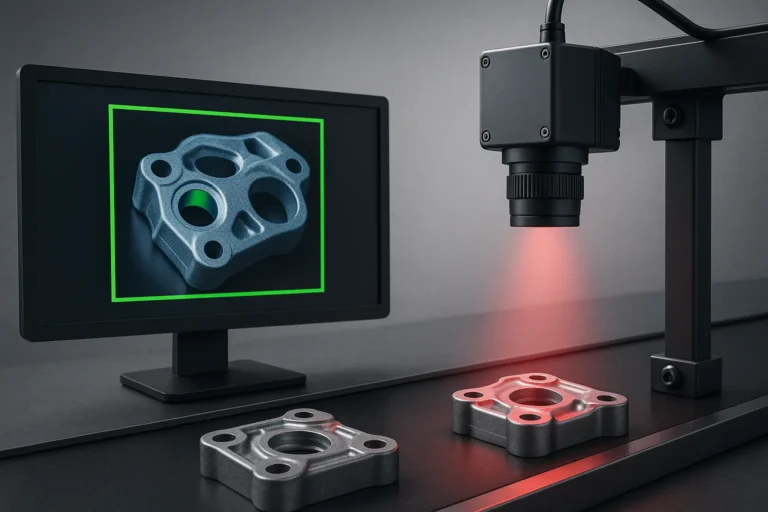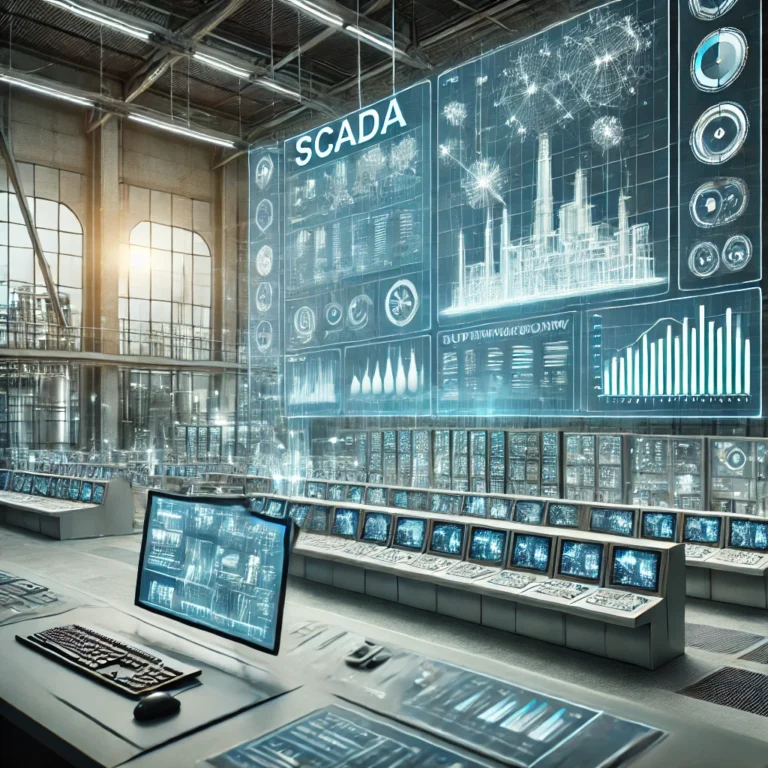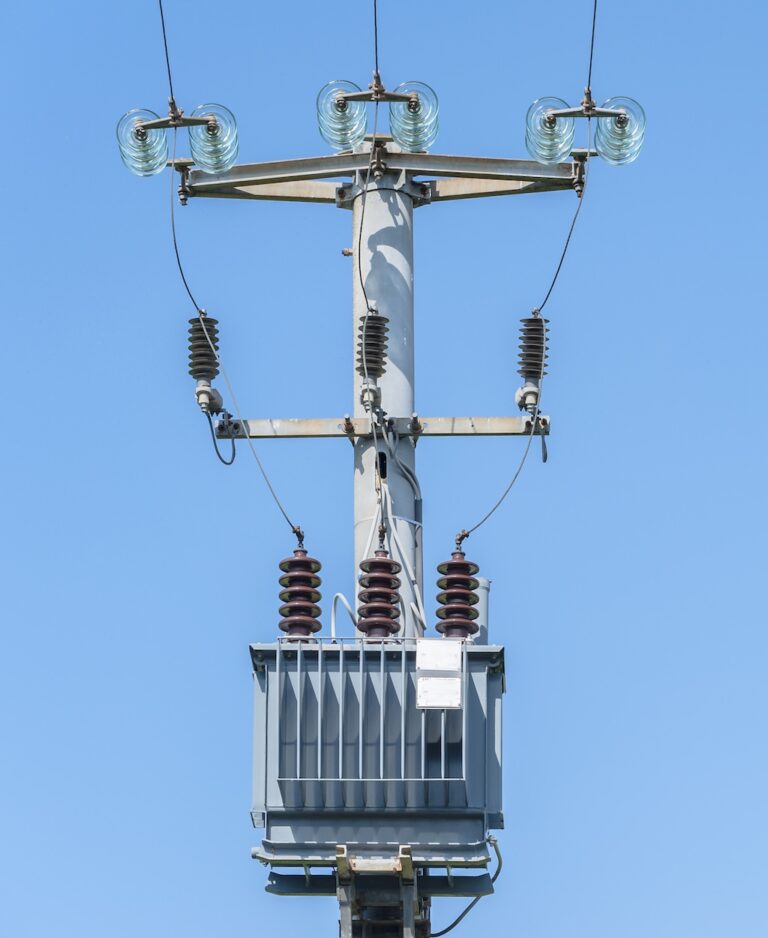Image Processing Systems and Their Applications
Image processing systems are technological solutions designed to analyze, interpret, and manipulate digital images using computer-based algorithms. These systems play...
Devamını Oku

Chemical plant installation is a complex and critical process that involves multidisciplinary engineering efforts, strategic planning, and strict adherence to safety and environmental standards. These facilities play a fundamental role in various industries such as petrochemical, pharmaceutical, textile, paint, and agriculture, enabling the safe and efficient production of chemical materials. A well-executed installation ensures not only optimal production but also operational safety, regulatory compliance, and long-term sustainability.
From initial feasibility assessments to the integration of automation systems, the process requires a comprehensive and technically accurate approach. Every detail—from the layout of piping systems to fire suppression mechanisms—must be designed and implemented with precision. Moreover, the facility must align with both local regulations and international engineering standards to ensure operational excellence and safety.
At Adatech, we provide end-to-end engineering solutions for chemical plant installation, combining innovation with deep sector knowledge. Our services cover all phases including research, design, mechanical setup, and commissioning. Thanks to our strong commitment to quality, safety, and performance, we help industries establish chemical production environments that are scalable, efficient, and compliant. With a future-forward vision and customer-centric focus, we turn industrial goals into reality through expertly managed installation projects.
Chemical plant installation refers to the comprehensive process of establishing a facility designed to manufacture, process, and store chemical substances safely and efficiently. This process involves various phases, including site selection, environmental and safety assessments, equipment selection, infrastructure design, and system integration. It demands expertise in multiple engineering fields such as mechanical, electrical, civil, and automation engineering. The goal is to create a production environment that is compliant with regulatory standards, cost-effective, and capable of supporting the intended industrial output.
These installations are vital for scaling chemical production while ensuring operational safety and environmental responsibility. A well-planned installation minimizes the risk of downtime, hazardous leaks, or regulatory violations, making it a strategic investment for any industry involved in chemical processes. At Adatech, our approach to chemical plant installation is built on precision, innovation, and a deep understanding of industrial needs. From design to implementation, we deliver reliable engineering solutions that support sustainable and secure chemical manufacturing.
The process of chemical plant installation consists of multiple structured stages, each requiring careful planning and execution to ensure the facility operates safely and efficiently. The journey begins with feasibility and preliminary research, which involves evaluating site conditions, legal regulations, resource availability, and environmental factors. Once the groundwork is laid, project planning and detailed engineering design take place. This includes layout planning, system diagrams, equipment specifications, and compliance documentation. These designs serve as the blueprint for the construction phase.
Following design approval, construction and mechanical installation begin. This stage involves building the plant’s physical structures, installing piping systems, machinery, tanks, and other process equipment. Electrical, automation, and safety systems are also integrated during this phase. Once all components are in place, rigorous testing and commissioning ensure that the plant is ready for operational use. At Adatech, we manage each stage of the chemical plant installation process with precision, adhering to international engineering standards and project-specific requirements.
The first stage of chemical plant installation involves feasibility and preliminary research, where the site’s suitability is evaluated in terms of geography, environmental impact, infrastructure, and regulatory requirements. This phase determines whether the project is technically and financially viable. Key data collected during this step guides all subsequent stages and helps avoid costly redesigns or legal complications later on.
During the project planning and design phase of chemical plant installation, detailed engineering plans are created to define the plant’s layout, system architecture, equipment requirements, and process flow. This step ensures that safety, efficiency, and scalability are built into the design. Accurate planning at this stage reduces the risk of operational issues and supports smooth construction and commissioning phases.
This phase of chemical plant installation brings the project to life through physical execution. Construction activities include building structures, laying foundations, and preparing utility connections, while mechanical installation involves placing process equipment, piping, and safety systems. Precision and quality control are essential to ensure the plant operates safely and efficiently once commissioned.
Safety is a core pillar of every chemical plant installation project due to the potentially hazardous nature of chemicals and processes involved. From the earliest stages of planning, a thorough risk assessment is conducted to identify potential safety hazards such as chemical leaks, fire risks, or equipment failure. Based on this assessment, the design must include appropriate safety systems such as gas detectors, emergency shut-off valves, fire suppression systems, and containment barriers. Personal protective equipment (PPE) requirements and safe operating procedures are also defined during this phase.
During installation and operation, adherence to national and international safety standards is non-negotiable. This includes compliance with regulations related to occupational health, environmental safety, and chemical handling. In addition, staff training is a crucial component—operators must be educated on emergency protocols, equipment usage, and hazard awareness. At Adatech, we integrate safety into every phase of chemical plant installation, ensuring not just operational efficiency, but long-term protection for people, property, and the environment.
Chemical plant installation plays a transformative role in advancing industrial capabilities across multiple sectors. These plants enable the large-scale production of essential chemicals used in industries such as energy, pharmaceuticals, agriculture, plastics, and textiles. By facilitating local manufacturing, they reduce dependence on imports, support supply chain resilience, and contribute to national economic growth. Moreover, they open new avenues for innovation, especially in sustainable materials and green chemistry.
Beyond economic value, chemical plants also drive infrastructure development and create skilled employment opportunities. Their establishment often leads to improvements in energy systems, transportation, and utilities in the surrounding region. At Adatech, we view each chemical plant installation project not just as an engineering task but as a strategic investment in regional development and technological progress. Through high-performance facilities, we help shape a more productive, efficient, and sustainable industrial future.

Image processing systems are technological solutions designed to analyze, interpret, and manipulate digital images using computer-based algorithms. These systems play...
Devamını Oku
Redundant SCADA refers to a fail-safe monitoring and control system architecture designed to ensure uninterrupted data communication and high availability...
Devamını Oku
A transformer is an essential device in electrical systems designed to transfer electrical energy between circuits. It efficiently converts voltage...
Devamını OkuPROTECTION OF PERSONAL DATA
WEBSITE COOKIE POLICY
Your personal data; It is one of the leading principles of our Organization to protect the privacy of visitors to the website (www.adatech.com.tr) operated by ADATECH as the data controller. This Cookie Usage Policy (“Policy”) explains to all our website visitors and users which types of cookies are used and under what conditions.
Cookies are small text files stored on your device or network server by websites you visit on your computer or mobile device.
They are generally used to provide you with a personalized experience during your use of the website you visit, to improve the services offered and to improve your experience, and may contribute to ease of use while browsing a website. If you do not prefer the use of Cookies, you can delete or block Cookies in your browser settings. However, we would like to remind you that this may affect your use of our website. Unless you change your cookie settings in your browser, we will assume that you accept the use of cookies on this website.
1. WHAT KIND OF DATA IS PROCESSED IN COOKIES?
Cookies on websites, depending on their type, collect data about your browsing and usage preferences on the device you visit the site. This data includes information about the pages you access, the services and products you review, your preferred language option and other preferences.
2. WHAT is a solution and what are its intended uses?
Cookies are small text files that are stored on your device or network server through browsers by websites you visit. These small text files, which contain your preferred language and other settings on the site, help us remember your preferences the next time you visit the site and make improvements to our services to improve your experience on the site. Thus, you can have a better and personalized usage experience on your next visit.
The main purposes of using cookies on our Website are listed below:
3.TYPES OF COOKIES USED ON OUR WEBSITE
3.1. Oturum Çerezleri
Session cookies ensure that the website functions properly during your visit. They are used for purposes such as ensuring the security and continuity of our sites and you during your visit. Session cookies are temporary cookies, they are deleted when you close your browser and come to our site again, they are not permanent.
3.2. Persistent Cookies
These types of cookies are used to remember your preferences and are stored on your device via browsers. Persistent cookies remain stored even after you close your browser or restart your computer from which you visited our site. These cookies are kept in subfolders of your browser until they are deleted through your browser’s settings.
Some types of persistent cookies may be used to provide you with special suggestions, taking into account issues such as your purpose of using the Website.
Thanks to persistent cookies, if you visit our Website again with the same device, it is checked whether there is a cookie created by our Website on your device and if there is, it is understood that you have visited the site before and the content to be transmitted to you is determined accordingly and thus a better service is provided to you.
3.3. Mandatory/Technical Cookies
These cookies are essential for the website you visit to function properly. The purpose of such cookies is to provide necessary services by enabling the website to function. For example, it allows you to access secure parts of the website, to use its features, to navigate on it.
3.4. Analytical Cookies
They collect information about the way the website is used, the frequency and number of visits, and show how visitors navigate to the site. The purpose of using such cookies is to increase performance by improving the way the site functions and to determine the general trend direction. They do not contain data that could enable the identification of visitors. For example, they show the number of error messages displayed or the most visited pages.
3.5. Functional/Functional Cookies
It saves the choices made by the visitor within the site and remembers them on the next visit. The purpose of such cookies is to provide ease of use to visitors. For example, it prevents the site user from re-entering the user password on each page they visit.
3.6. Targeting/Advertising Cookies
They enable the measurement of the effectiveness of advertisements served to visitors and the calculation of the number of times the advertisements are viewed. The purpose of such cookies is to serve ads customized to the interests of visitors.
Likewise, they enable the detection of visitors’ interests specific to their browsing and the presentation of appropriate content. For example, it prevents the advertisement shown to the visitor from being shown again in a short time.
4. HOW TO MANAGE COOKIE PREFERENCES?
To change your preferences regarding the use of cookies or to block or delete cookies, simply change your browser settings.
Many browsers give you the option to accept or reject cookies, accept only certain types of cookies, or be alerted by the browser when a website requests to store cookies on your device so that you can control cookies.
It is also possible to delete cookies previously saved in your browser.
If you disable or refuse cookies, you may need to set some preferences manually, some features and services on the website may not function properly as we will not be able to recognize and associate your account. You can change the settings of your browser by clicking on the relevant link from the table below.
5. ENFORCEMENT OF WEBSITE PRIVACY POLICY
Website Privacy Policy …./…./…./…. . is dated. In case all or certain articles of the Policy are renewed, the effective date of the Policy will be updated. The Privacy Policy is published on the website of the Authority (www.adatech.com.tr) and made available to the relevant persons upon the request of the personal data owners.
ADATECH
Address: Esenyalı Neighborhood Yanyol Street Varyap Plaza No:61-148 Pendik / Istanbul
Telephone: +90 (216 ) 514 80 69
E-mail: info@adatech.com.tr
Web Address: www.adatech.com.tr